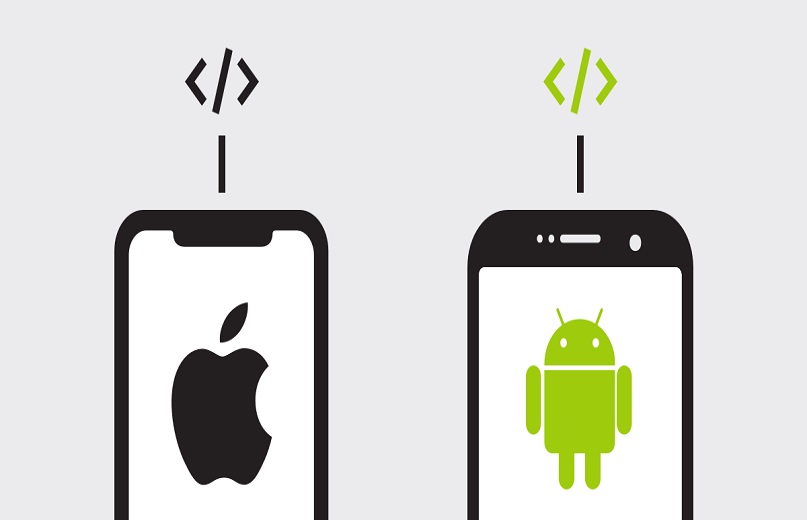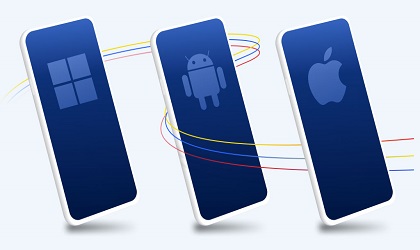
Native App Development: Unlocking Exceptional Performance and Outstanding User Experience
In today’s digital world, businesses are increasingly turning to mobile applications to engage customers and streamline operations. Among the various types of mobile app development, native app development stands out for its ability to deliver high performance, exceptional user experience, and seamless integration with device features. This article explores the advantages of native app development, its key considerations, and the future trends shaping this field.

What is Native App Development?
Native app development involves creating applications specifically for a particular mobile operating system, such as iOS or Android. This approach uses platform-specific programming languages and development tools, such as Swift or Objective-C for iOS and Kotlin or Java for Android. Native apps are installed directly on the device and have access to all its features, providing users with a smooth and responsive experience.
Advantages of Native App Development
1. Superior Performance
Native apps are designed and optimized for a specific platform, enabling them to take full advantage of the device’s hardware and software capabilities. This results in faster load times, smoother animations, and improved overall performance compared to hybrid or web apps.
2. Enhanced User Experience
Because native apps are tailored to a particular operating system, they adhere to the platform’s design guidelines and user interface conventions. This ensures a consistent and intuitive user experience, making the app feel like an integral part of the device.
3. Full Access to Device Features
Native apps have direct access to all the device’s features, such as the camera, GPS, accelerometer, and microphone. This allows developers to create feature-rich applications that leverage the device’s capabilities to deliver unique functionalities and improve user engagement.
4. Offline Functionality
Native apps can store data locally on the device, allowing users to access certain features and content even without an internet connection. This offline functionality enhances user satisfaction and ensures that the app remains usable in various environments.
5. Improved Security
Native apps benefit from the security features of their respective operating systems. They can also implement additional security measures, such as encryption and biometric authentication, to protect sensitive user data and ensure compliance with industry standards.
Key Considerations for Native App Development
While native app development offers numerous advantages, businesses must consider several factors to ensure the success of their projects:
1. Platform Selection
Deciding which platform to develop for—iOS, Android, or both—depends on the target audience, budget, and project requirements. Businesses should conduct market research to identify which platform best aligns with their goals and user preferences.
2. Development Cost and Time
Developing native apps for multiple platforms requires separate codebases and development teams, which can increase costs and time to market. Businesses must weigh the benefits of native development against the additional resources required.
3. App Maintenance and Updates
Native apps require ongoing maintenance to ensure compatibility with the latest operating system updates and device features. Regular updates are necessary to fix bugs, improve performance, and introduce new functionalities.
Future Trends in Native App Development
As technology evolves, several trends are shaping the future of native app development:
1. Cross-Platform Development Tools
While native app development remains popular, cross-platform development tools like Flutter and React Native are gaining traction. These tools enable developers to write a single codebase that runs on both iOS and Android, reducing development time and costs.
2. Integration of Artificial Intelligence
Artificial intelligence (AI) is increasingly being integrated into native apps to enhance user experience and automate tasks. AI-powered features, such as chatbots, personalized recommendations, and voice assistants, are becoming more prevalent in mobile applications.
3. Augmented Reality and Virtual Reality
Augmented reality (AR) and virtual reality (VR) technologies are transforming how users interact with mobile apps. Native apps are leveraging AR and VR to create immersive experiences in gaming, retail, education, and healthcare.
4. Focus on Privacy and Security
With growing concerns about data privacy and security, native app developers are prioritizing the implementation of robust security measures. This includes using end-to-end encryption, secure authentication methods, and compliance with data protection regulations.
Conclusion
Native app development offers unparalleled performance, user experience, and access to device features, making it a preferred choice for businesses seeking to deliver high-quality mobile applications. While it requires careful planning and resources, the benefits of native development are significant, particularly for apps that demand superior performance and integration. As technology continues to advance, native app development will remain a critical component of the mobile app ecosystem, driving innovation and enhancing user engagement.


Leave a Comment